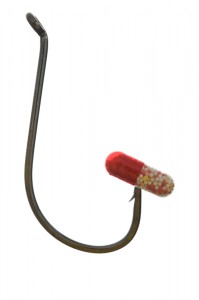When Pain Manages You…and How to Work With it
 Pain management works when we can manage our pain. But, what happens when our pain manages us? What happens when no matter what we do, no matter how much medication we take, the pain stays?
Pain management works when we can manage our pain. But, what happens when our pain manages us? What happens when no matter what we do, no matter how much medication we take, the pain stays?
At some point in the lives of many of us, we experience pain that cannot be managed or controlled by medications alone. Pain takes on the “element of blank” the Emily Dickinson so aptly wrote, where:
It cannot recollect
When it began, or if there was
A time when it was not. It has no future but itself,
Its infinite realms contain
Its past, enlightened to perceive
New periods of pain.
When our pain reaches this kind of level, when no matter how much medication we take, it still remains with its “infinite realms,” then it’s time for us to work with ourselves around our pain. How?
Ongoing research into pain medications continue to show us that our mind and our attitudes towards pain can dramatically affect how well our medications will (or will not!) work. What is apparent is that any aversion that we have towards our pain will worsen our perceptions of it. That is, if we fear our pain, or try to push it away, it actually become worse! That’s correct, if we try to push our pain away, it gets worse!
Alright, so am I saying that we need to “like” our pain? “Like” might be a strong word. How about…well, here’s an example. You know that lifelong friend who you keep as a friend because you’ve known them for so long? Maybe you don’t like hanging out too much, but you stay in touch because you’re familiar, because of your relationship?
In the same way that we greet this friend, or someone who we know but may not care for, in this same way, if we can not immediately want to run from our pain, but can engage it without fear or aversion, then we release its hold on us. But how?
Have you noticed what your mind does as soon as your pain arrives or, if it’s always present, then how your mind reacts when the pain worsens? Is there an immediate knee-jerk (I suppose that would be “mind-jerk”) reaction when you experience pain? Do you sigh? Do you groan? What do you do when pain arrives at your doorstep?
The beginning to managing unmanageable pain starts when we gain some insight into what our immediate reaction is to our pain. For me, I know that as soon as I began to say, “oh, that hurts” from a place of not reacting, that the pain started to change. How? It didn’t seem to take control of me as easily. That doesn’t mean that it didn’t hurt; pain is pain, and it causes a sensation. But (and this is the important part), when the sensation of pain was no longer something that I tried to avoid, when it “simply was,” then its effects changed. It no longer held my attention in the same way that it had previously. It “simply was” just like a scar simply is. Instead of being THE sensation in my mind at the present, it simply became another of the many sensations that experienced. AND, it no longer dominated my mind. Right, it no longer dominated my mind.
Starting today, working with your pain, or illness, or challenges, or…anything in your mind; begin by watching your mind and the responses that occur when anything that challenges your idea of what you “like” arises. Just for today, take a break from assigning a “good” or “bad” to anything that happens in your life. Just for today, open up some space for anything to occur and to just be with it. Just see what happens…
Please stay tuned…I’ll be providing some FREE audio downloads of relaxation scripts that you can use to work with pain. These scripts are based on meditation practices in mindfulness for working with pain.

Leave a comment